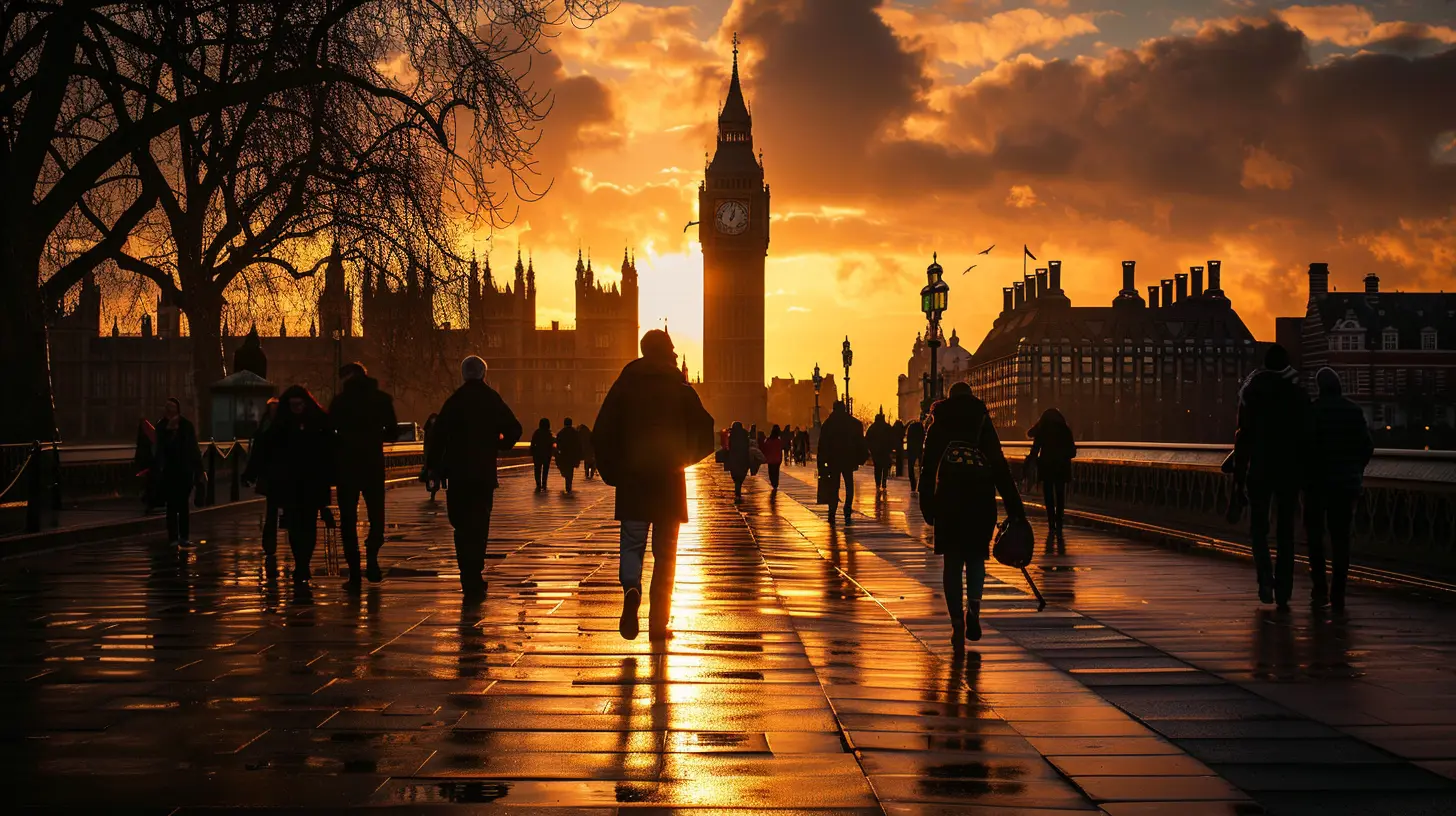The Impact of Local Government Policies on Cost of Living
28 July 2025
Let’s face it—keeping up with the cost of living these days feels like trying to run on a treadmill that keeps speeding up. You’re chasing expenses, budgeting like a pro, and yet, somehow, it still feels like your paycheck isn’t stretching as far as it used to. Ever wondered why that is? Sure, inflation plays a part, but there’s another key player in this story: your local government.
Yes, the city council, your mayor’s office, and even your local zoning board play a massive role in how affordable (or not) your area is. Local government policies quietly shape our everyday expenses—from rent and taxes to the price of groceries and gas. Let’s dive into how this all works and how these decisions might be affecting your wallet more than you realize.

What Exactly Is Cost of Living?
Before we start pointing fingers, let’s break down what we mean by “cost of living.” Simply put, it’s the amount of money you need to cover basic expenses like:- Housing
- Food
- Transportation
- Healthcare
- Utilities
- Education
- Taxes
Now, while the federal government might set overarching economic trends, it’s your local government's policies that can swing these costs wildly from one town to the next. Ever noticed how rent in New York City feels lightyears away from what you'd pay in a small town in Ohio? Local policies are often the reason why.
Housing: The Big Budget Buster
Let’s start with the elephant in the room: housing.Zoning Laws and Housing Costs
This one’s HUGE. Local zoning laws determine what kind of buildings can be constructed and where. For instance, if your city only allows single-family homes in many neighborhoods and blocks apartment developments, housing supply remains tight—and prices stay sky-high. It’s basic supply and demand.So, if your rent keeps increasing year after year, it might not just be greedy landlords. It could actually be local policies restricting the construction of new, affordable housing.
Property Taxes
Another hidden cost? Property taxes. These are set at the local level and vary significantly. A higher property tax rate drives up homeownership costs—and guess what—it also trickles down to renters. Landlords just pass those costs onto tenants. So even if you’re not paying the tax directly, your rent probably reflects it.
Transportation: Getting From A to B Isn’t Free
Do you drive a car? Rely on public transit? Either way, local policies touch every mile of your commute.Gas Taxes and Road Maintenance
Some local governments impose additional gas taxes to fund road maintenance. That’s great when it means smoother roads and fewer potholes, but it also means higher prices at the pump.Public Transit Investment
Cities that invest in robust public transit systems make commuting more affordable and sustainable. On the flip side, if your city skimps on public transportation, you're stuck with car payments, insurance, gas, and parking fees—not exactly wallet-friendly.
Taxes, Fees, and Fines: Death by a Thousand Cuts
You know what's sneaky? All the little charges the local government tacks on. They add up fast.Sales Tax
State and local governments decide sales tax rates. So depending on where you live, that $100 grocery bill might cost you $105 or $110. Over a year, those extra percentages crush your budget.Service Fees
Want to register your car? Get a business license? Use the public pool? All of these services usually come with a fee. Individually, they’re not devastating, but together, they create a heavier cost of living.Fines That Bleed You Dry
Some cities rely heavily on traffic tickets and small-code fines for revenue. Sadly, this can disproportionately affect lower-income residents, increasing financial stress in already challenging situations.Utilities and Public Services: The Hidden Wallet Drainers
You might not think of water or trash pickup until something goes wrong, but these are essential—and they’re heavily influenced by local policy.Water and Sewer Rates
Most cities control these utilities. If your city has aging infrastructure and poor planning, you could be paying higher rates just to get safe drinking water.Waste Management
Some cities offer free trash and recycling services. Others charge monthly or even per-bag fees. Imagine budgeting for garbage! But that’s the reality in some places.Education Costs: More Than Just Tuition
Think local education only matters if you have kids? Think again.Property Taxes and School Funding
In many areas, local school funding comes from property taxes. Better schools usually mean higher taxes. So even if you’re child-free, you’re still footing part of the education bill.Affordable Childcare and Pre-K
Some cities invest in low-cost childcare and universal pre-K programs. These reduce cost-of-living dramatically for families. Skimp on these programs? You’re likely paying a small fortune just for daycare.Healthcare Access and Local Policy
Okay, healthcare is complex and mostly influenced at the federal or state level, but don’t underestimate the local angle.Support for Clinics and Public Health
Local governments often decide how much funding goes to community clinics and mental health services. Better access means fewer ER visits, lower insurance premiums, and more affordable care in the long run.Urban Planning and Lifestyle Costs
Here’s where it gets interesting. The way your city is laid out affects daily life and, by extension, your wallet.Walkable Cities vs. Car-Centric Ones
Live in a walkable city with bike paths and nearby shops? You probably spend less on transportation. Sprawling suburbs with no sidewalks? You’re likely chained to your car.Access to Parks and Free Recreation
Great local governments invest in public goods—parks, trails, community centers—all of which offer free or low-cost options for fun. If your area lacks these, entertainment becomes another item on your expense list.The Cost of (Local) Politics
Politics isn’t just something that happens in Washington. Who you vote for in local elections often has a more direct impact on your daily spending than you might realize.Progressive vs. Conservative Budgeting
Some local governments prioritize social safety nets, affordable housing, or community development. Others may focus on low taxes and limited services. Each approach trickles down into your cost of living—one way or another.Policy Transparency and Community Input
Great local governments actively include citizens in policymaking. Others? Not so much. If citizens aren't heard, it's easier for governments to implement policies that raise living costs without accountability.Real-World Examples: What It Looks Like
Let’s break this down with two fictional but realistic examples:City A: Progressive Urban Hub
- Invests in mixed-income housing- Offers free public bus system
- Runs subsidized childcare programs
- Charges moderate property and sales taxes
Result: Higher initial tax burden, but lower daily expenses on transport, rent, and childcare.
City B: Car-Centric Suburb
- Restrictive zoning limits affordable housing- No public transit
- Minimal social services
- Low taxes, but high service fees
Result: Lower taxes, but higher costs for housing, transportation, childcare, and even trash pickup.
So, What Can You Do?
Feeling powerless? Don’t. While local policies can feel like they're set in stone, they're often more flexible—and more influenced by your voice—than national ones.Get Involved
Attend town hall meetings. Join community boards. Write to your local representatives. You’d be surprised how much power one person can have in a small community.Vote in Local Elections
Seriously, DO IT. These are often decided by just a few hundred votes. Your voice matters more than you think.Stay Informed and Advocate
Keep tabs on what’s going on with local zoning changes, tax increases, or budget cuts to community programs. If you see something that’ll raise your expenses unfairly—speak up!Final Thoughts
It’s easy to complain about the cost of living. It’s harder—but more productive—to examine what’s driving it. Local government policies aren't just boring decisions made in stuffy rooms—they're shaping the number on your rent check, the price at the gas pump, and even how much fun you can afford.So next time you wonder why your expenses are creeping up, don’t just blame the economy. Ask what your local leaders are doing—and if they’re not helping, consider finding new ones. Because the cost of living isn't just a number—it's a reflection of choices made right in your own backyard.
all images in this post were generated using AI tools
Category:
Cost Of LivingAuthor:

Audrey Bellamy
Discussion
rate this article
1 comments
Kason McGivern
Local government policies significantly shape the cost of living by influencing housing, taxes, and local services. Understanding these dynamics can help residents advocate for more effective policies that promote affordability and enhance community well-being.
August 27, 2025 at 3:25 AM

Audrey Bellamy
Thank you for your insightful comment! You're absolutely right—local government policies play a crucial role in shaping the cost of living and resident advocacy is essential for driving positive change.


